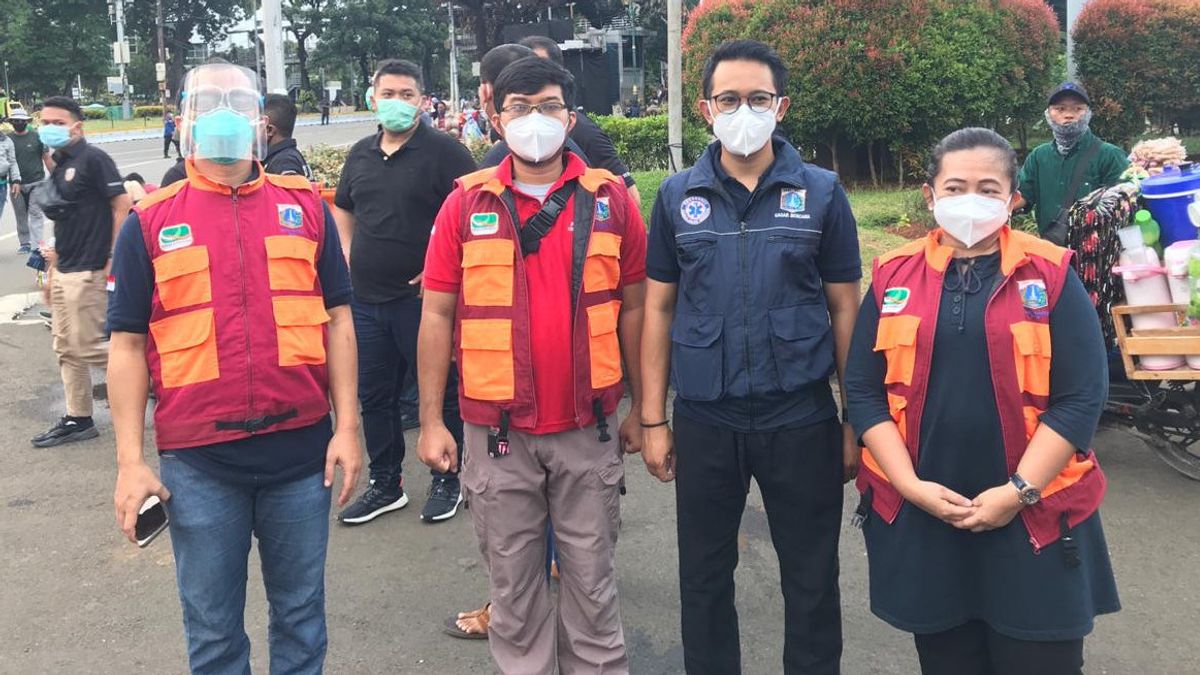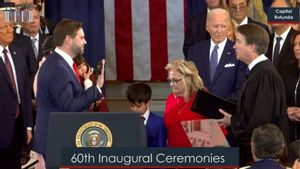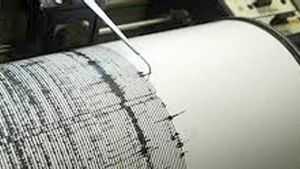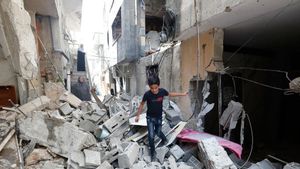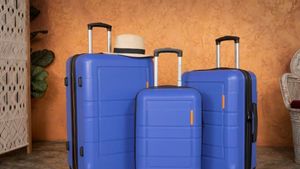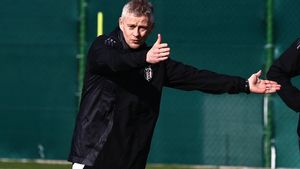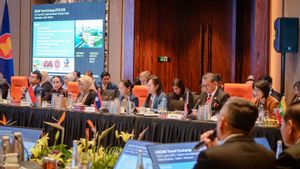JAKARTA - The hot sun on Wednesday, October 28 threw down the intersection of Jalan Medan Merdeka Barat and Jalan Medan Merdeka Selatan. We were there, monitoring the demonstration against the Omnibus Law on the Job Creation Act. That day we understood how medical support is not only important when riots break out, but can also be of great help when rallies are peaceful.
It was late in the afternoon at around 15.00 WIB, when the colors of the alma mater from various campuses coalesced in the middle of an alliance of the Indonesian Student Executive Board (BEM SI) around the Arjuna Wiwaha Horse Statue. According to rough field data, there were about a thousand students who were with us on the streets at that time.

About an hour of monitoring the action, thirst hangs down the throat. We have already washed our throat with water. Our bodies need fluids.
The presence of hawkers, as usual, becomes a helper. Their commercial activities were carried out amidst the shouting speeches that remained fiery.
The command car hasn't run out of steam yet. In addition, small groups of students also voiced their opinions through various actions, including several theatrical actions.
Although it was peaceful and conducive, it did not mean that the demonstration that day was risk-free. We feel right. In the heat of the sun, anyone can get dehydrated.
The role of the medical teamWe met a medical team in the field. Eldest Doctor Mulia Putra, his name. He is the Head of the Health Crisis and Referral Health Facilities Section of the DKI Jakarta Provincial Government Health Service.
That day Sulung went into the field with a number of other medical personnel. At least 12 ambulances were deployed by the Health Service. The ambulance team was divided into two. Five ambulances operate in the morning. Seven other ambulances were deployed to guard the demonstration from noon to the afternoon.
One ambulance is filled by one doctor, two nurses and a driver. The medical devices that must be present in guarding the action are medicines for common diseases, oxygen, bandages, and infusions. According to Sulung, their role there is first aid provider.
"Sometimes it can be more if you need more. But the standard is like that ... Then there are medical devices, medicines. Medical devices, ranging from oxygen, infusions," said Sulung.

The symptom of dehydration, as we thought, is one of the most anticipated by medics in the field. In a demonstration that took place amidst the hot weather, the participants were very likely to experience dehydration, said Sulung.
"If the patient is tired, it is usually dehydrated. So we can give him a drink or we can rehydrate infusion so that the fluids return to normal."
In more precarious situations, riots or clashes, the role of medicine will be more vital. The eldest and his friends could be more busy with injured victims - both minor and serious, as happened at the last October 8 demonstration.
In a clash or chaotic situation, a medical officer who goes to the field can handle dozens or even dozens of patients. Sulung said, most of the handling was tear gas victims. "If there are clashes, there are usually more, yes. Some get tears," said Sulung.
The treatment of patients with tear gas varies depending on their condition. For symptoms that are not severe, the patient can be cured only by washing with water. However, for more severe symptoms, such as shortness of breath, treatment is more specific.
"If we panic, we usually calm down first. We make sure the respiratory organs are good. Then we will handle it, as much as possible we can handle it on the spot," said Eldest.
"If the eye hurts, it's not too difficult, we just wash it with water. Usually there is improvement, then we calm down. Only after that we give oxygen. At least five to ten minutes he can return to normal," he added.
As Eldest said, he and the team were the vanguard of first aid. That is, handling as much as possible is done on site. However, in a more serious condition, the role of an ambulance driver is relied on to take patients to referral hospitals.
"For example, we can handle a small wound. We can handle small stitches. Fatigue, fainting, we can handle it. But if we need a referral, take it to the hospital."
"Sometimes some are traumatized, there are wounds that fall, are ridiculous. The name is crowded like this, someone slips, sprains, gets hit by a friend."
The English, Chinese, Japanese, Arabic, and French versions are automatically generated by the AI. So there may still be inaccuracies in translating, please always see Indonesian as our main language. (system supported by DigitalSiber.id)
